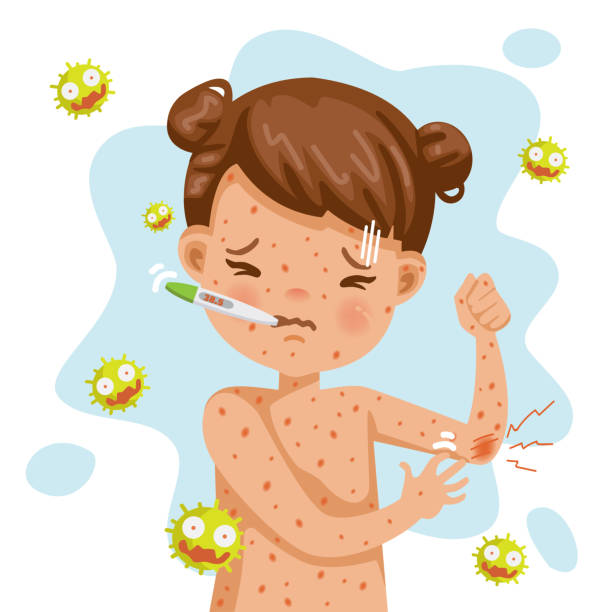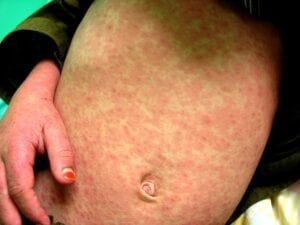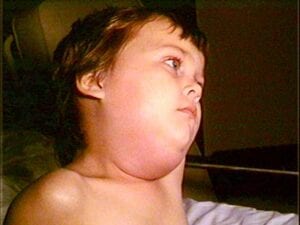Measles, mumps, rubella, and varicella are all contagious diseases caused by viruses. The MMR vaccine is currently used to protect against measles, mumps, and rubella. And varicella is another word for chickenpox. The MMRV vaccine includes prevention against varicella.
Measles
Before the measles vaccine became available in 1963, it was a common disease among school-aged children. It spreads by inhaling infected droplets or by contact with infected fluid. Kids with measles may have cold-like symptoms, a red/brown, blotchy rash over the entire body, and watery, inflamed eyes. Measles infections may cause seizures, pneumonia, encephalitis, croup, diarrhea, or an ear infection. It is particularly dangerous for children with co-morbidities like cancer, heart disease, epilepsy, and other illnesses.
Furthermore, while we do have a vaccine for measles, outbreaks still occur. Please contact your pediatric healthcare provider if you think your child has measles. They can properly diagnose your child and then contact your local health department to contain the spread.
Mumps
Mumps is a viral infection spread through the inhalation of infected droplets. People with mumps typically have swollen salivary glands, with painful swelling on one or both cheeks. Other signs and symptoms include fever, headache, nausea and vomiting, and joint pain and swelling. In addition, mumps can cause swelling in the ovaries or testicles, brain or spinal cord swelling, and deafness.
Rubella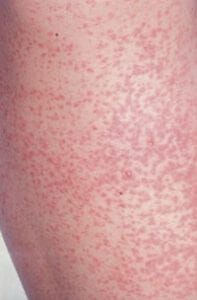
Rubella is another virus that causes a mild illness, including fever, a rash that spreads from the face to the rest of the body, and a sore throat. If a pregnant person may suffer a miscarriage or have a baby with a congenital disability if they are diagnosed with rubella.
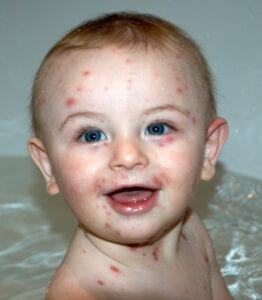 Varicella
Varicella
The Varicella virus causes chickenpox. This highly contagious disease is preventable with the varicella vaccine. Kids with chickenpox have an itchy rash that appears like red blisters. They usually start on the torso and scalp, then spread to the rest of the body. As they heal, the blisters will become crusty. Some of us who get chickenpox may develop shingles (painful rash) years after their infection.
What can I do for my kid with measles, mumps, rubella, or varicella?
- Stay home from school/daycare
- Get plenty of rest
- Drink lots of liquids
- Use over-the-counter pain relievers like acetaminophen (Tylenol) for pain and fever.
- Keep your child from scratching itchy rashes. Trim fingernails and use anti-itch bath oatmeal.
- Use an antihistamine for itchy rashes.
Measles, Mumps, Rubella, & Varicella Prevention
Get vaccinated! We typically give the first dose of the MMR vaccine and varicella vaccine to children aged 12 to 15 months and the second to kids aged 4 to 6 years. You can also get the MMRV vaccine. The MMRV vaccine is given to kids in two doses from 12 months to 12 years.
We can discuss your vaccine schedule during your next visit to GHT. For our vaccine costs, please visit Our Services & Cash Prices. Finally, please stay up to date on your child’s vaccines and contact us with any of your questions or comments.

